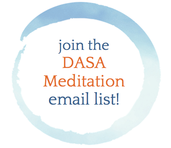Doctors report that 75% of all illness is caused by stress. Yet, we walk through each day unaware of the stress response, a warning signal that calls out for rest, relaxation, and balance.
Today's world is multifaceted, and stress pervades our life each and every day. Traffic builds, three jobs are funneled into one, financial pressure increases as housing costs rise, violence dominates our schools, social pressures rise, there is a mounting sea of new technology, moreover, we have an uncertain future with climate change. As a teacher of meditation and mind-body wellness, I see firsthand the impact of these stressors.
- How does stress affect the body?
- Can stress be held at bay?
- What steps can be taken to restore health and happiness?
It is appropriately termed the "fight or flight" response. This involuntary response is triggered by the longest nerve in the human body, the vagus nerve. Although the vagus nerve is referred to in the singular form, it is actually a set of two nerves. The vagus nerve's name is derived from Latin, meaning "wanderer."
The vagus nerve is the tenth cranial nerve. It controls two branches of the autonomic nervous system, the sympathetic nervous system (the fight or flight response) and the parasympathetic nervous system ( the relaxation response or rest and digest).
Signs of stress
The stress response is the body's alarm system. Stress manifests in various forms, physical, behavioral, emotional and cognitive forms including: Insomnia, low energy constipation, diarrhea, nausea, headaches, brain fog, irritability, body aches, rapid heartbeat, hair loss, dry mouth, dry eyes, aggravation of conditions such as asthma, pain in the shoulders or neck, cold hands and feet, acid reflux, anger, anxiety, chest pain, back pain, dizziness, and frequent colds.
Three sources of stress
- Life-threatening stress - The "fight or flight" response is a survival mechanism, that can be triggered by an epic crisis like a bear that comes out of nowhere and suddenly begins to chase you. Your body reacts in nanoseconds as your blood pressure elevates, the heart races, blood is suddenly pumped away from the hands and feet to your major organs (for running purposes). A cocktail of well-orchestrated stress hormones flood your body, your eyes dilate, you may lose control of your bladder or bowels (the body's method of unloading).
- Perceived stress - You can have the very same toxic "fight or flight" life-threatening stress reaction in the body from an overly-demanding boss, or when you are in a heated argument with your spouse, or just before you give that big presentation or talk (especially if you are terrified of public speaking). What is stress overload for one person, may not affect another.
- Epigenetic factors - Epigenetic studies show the effects of stress may filter down to our DNA. A study on rats showed babies that were nurtured by their parents were less prone to stress because they developed more cortisol receptors. The baby rats of the opposite moms (who were not nurtured), became more stress-prone later in life.
Time to put on the brakes, pay attention, and encourage the relaxation response. Sounds easy enough. But once you've arrived at a certain threshold of stress, it's difficult to unwind. Think of a spring that has been wound far too tight. Deep levels of stress don't dissolve overnight, so go easy on yourself. I often hear meditation students say "I can't sit long enough to meditate" or "I'm too fidgety" or "I tried meditation, and it just isn't for me." When I hear these remarks, I know they are stuck in the stress response. Sometimes the stress level is so intense, people are actually uncomfortable in silence. The good news is—it's all fixable, sometimes we just need to relearn how to relax.
Pay attention to the breath
- Notice how you feel throughout the day, especially during high-stress situations.
- You might be surprised to find your breaths are shallow and rapid, or you might even hold your breath.
- Take three to five slow and deep breaths, and breathe into your belly. Your belly should rise and fall. Breathe in through the nose and out through the mouth. This is called diaphragmatic breathing or slow abdominal breathing, which lessens the sympathetic fight or flight response.
- Now notice again how you feel. You should feel slightly more relaxed. This type of deep-belly breathing stimulates the vagus nerve and the parasympathetic relaxation response.
- Use the breath throughout the day as you check in with your body, and whenever you find the need to relax.
| Stop the chatter A fire can attain such intensity that it creates and sustains its own wind system, better known as a firestorm. In a similar way, we can create our own profound levels of stress from nonstop negative self-talk chatter in our heads. Did you know that 85% of the things we worry about never happen? Five hundred years ago, Michel de Montaigne said: "My life has been filled with terrible misfortune; most of which never happened." We focus on things that are out of our control, or things that may not be true. Be mindful and immediately flip these negative thoughts into positive thoughts or affirmations. Studies show it takes five positive thoughts to cancel the effects of one single negative thought. Focus on the present moment. As Eckhart Tolle explains, "The past is a memory, and the future is uncertain. The only moment we have is the now." Live mindfully in the moment and you will banish unnecessary stress. | Image Elijah O'Donnell |
"Self-awareness and self-care are at the heart of all health care. Meditation creates a relaxed state of moment to moment awareness which is critical to stress reduction and self-awareness." —The Center for Mind-Body Medicine
- Find a teacher that is experienced. Before you choose, ask the following questions:
- How long they have practiced this form of meditation?
- How does this method work?
- How does it compare to other forms?
- Does the method target stress reduction?
- Look for personalized instruction. You'll be investing time to practice each and every day, so you want an easy, effective method with support.
- Think of your teacher as a resource, a wise guide to help navigate you to success.
- Once you learn, practice at the same time each day if possible. Good habits last a lifetime.
Meditation has been proven to be of the most profound tools for health and stress reduction. As you release stress, you may find your productivity increases, your thoughts become more organized, your mind is clearer, and you may feel a greater satisfaction in your work and personal life. Many new to meditation, report deeper sleep and greater levels of energy.
Over the years meditators have developed a reputation for being "easy going," they are known to "go with the flow." By all standards, they seem content and happier. Now science proves why. During meditation, there is a shower of feel-good chemicals released in the body along with a robust list of life-enhancing advantages.
- Serotonin - Promotes a state of happiness
- Melatonin - Improves the quality of sleep
- GABA - Offers a calming effect
- Endorphins - Promote an elevated mood
- DHEA - Recognized as the longevity hormone
More science behind meditation
Medical studies now document improved heart health with lower blood pressure. Within eight weeks of practice, structural changes in volume are seen in the brain's hippocampus, the "memory and learning" center, while the "fear center" known as the amygdala, shrinks in volume.
Studies document that a longer lifespan is possible through the Nobel Prize-winning science that studies the length and growth of telomeres (the protective end-caps on chromosomes). In a relatively short time, meditation lengthens our telomeres (our clock on aging). Longer telomeres interpret to a longer, healthier lifespan.
"It is not the strongest of the species that survive, nor the most intelligent, but the one most responsive to change." —Charles Darwin

Nine Sage Practices
- Meditation - Enhances self-awareness, reduces stress, improves heart health, improves memory and learning, improves sleep, and offers a lovely dose of calming, feel-good endorphins.
- Practice every day (20 minutes 2X per day) to get optimal results. One session is better than none, however, you will feel a tremendous difference in how you feel by adding that second meditation.
- A skilled teacher will guide you to maintain your practice with enjoyment and results.
- Sleep - Practice good sleep habits. You'll signal your body it's time to rest before bedtime.
- Create a ritual before bedtime and apply the two-hour rule. No TV or computer screens (which stimulate the brain).
- Dim the lights two hours before bedtime.
- Listen to music, read a chapter of a book, meditate, or do some gentle stretching. These will signal your body that it's time to wind down.
- Food as medicine - Select a healthy whole foods diet, eat mindfully, and take time to enjoy your meals.
- Movement - Get physically activity every day. Walking, dancing, yoga, biking, swimming are just some examples.
- Gratitude - Wake up each day to three things you are grateful for.
- Nature - Spending time in nature brings a fresh perspective. It's good for the soul.
- Relaxation - Take up a hobby with friends, golf, art, dancing, yoga, ping pong, tennis, swimming, anything that helps you relax.
- Laughter - The age-old saying is true, laughter actually is the best medicine.
- Laughter triggers the release of "feel-good" endorphins offering an overall sense of wellbeing.
- These "feel-good" endorphins also increase the antibodies that fight disease and infection.
- Social support - Connect in your community through a social network of like-minded people. Find your tribe. Feelings of belonging and purpose play an important role in health and wellness.
Author
| Lorraine Alexander, Executive Director for DASA Meditation She first began to meditate at the young age of 15, taught by her mother the founder of DASA. She is a second generation DASA instructor and trainer. Since 2014, Lorraine has led the annual DASA Teachers' Recertification Programs in California and Pennsylvania. In 2019, she completed advanced professional training in resilience, trauma, and healing, through the Center for Mind-Body Medicine. Contact Lorraine at [email protected] |
Developing Awareness through Self-Actualization
Founded in 1975
DASA Meditation supports the many fine meditation practices in the world.
We encourage you to find the meditation practice that is the perfect fit for you.
Personal instruction / Custom wellness programs
www.DASAmeditation.org









 RSS Feed
RSS Feed

